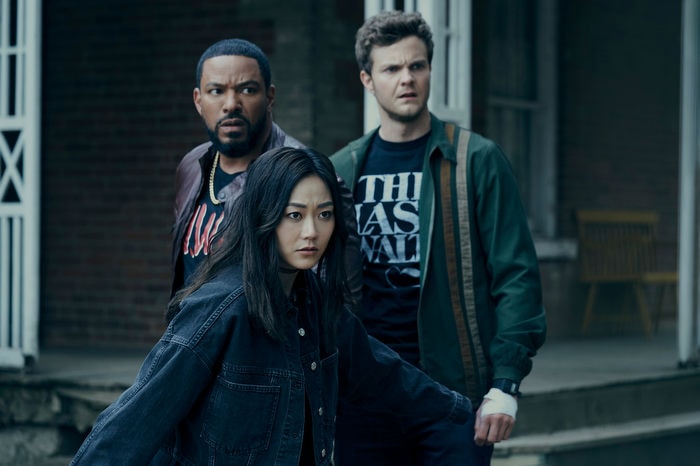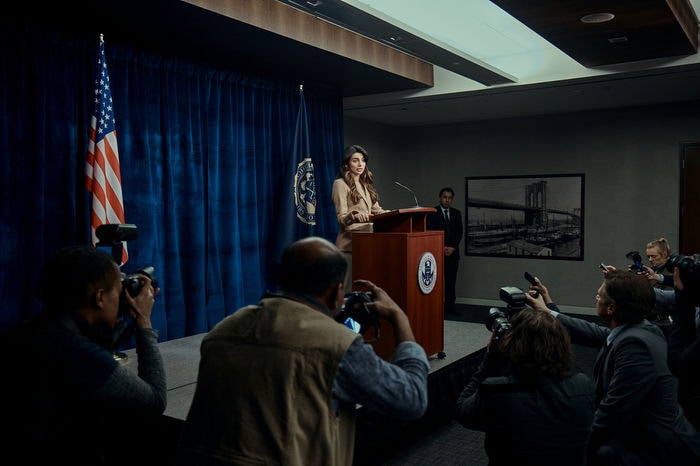The Boys’ Karen Fukuhara and Claudia Doumit on ethnic minorities in films and TV: ‘We have always been butt of the joke’
To call The Boys a violent show would be a massive understatement. The Amazon Prime Video series pushes the boundaries of gore, blood, and the bizarre with each season. And with the third season just days away, fans are expecting the show to up the ante this year. But violence isn’t the show’s only USP. It also has at its fore a diverse cast. Two of the cast members–Karen Fukuhara and Claudia Doumit–sit down for a chat with Hindustan Times about season 3, representation on the show, and how they feel playing powerful women on screen. Also read: The Boys 3 trailer: Karl Urban acquires superpowers to fight the Seven, Jensen Ackles makes a smashing entry
The Boys is based on the comic book of the same name by Garth Ennis and Darick Robertson. Many would argue that the show actually tones down some of the graphic content from the comic but it still manages to shock most. However, while the first season felt like a punch in the face for new viewers, many people assume the show cannot hurt them anymore. The actors disagree. Between laughs, Karen says, “It’s just bananas in that writers’ room.” Claudia adds, “Yes, I was shocked! I think that every season: ‘How are they going to top that?’ And they top that.”
Karen plays mutant Kimiko on the show, while Claudia is anti-superhero Congresswoman Victoria Neuman. The second season cliffhanger teased interesting arcs for both characters. But the two actors remain mum about any spoilers. When asked about any plot points, Claudia smiles and says, “They are watching us! Let’s just say there will be some fun moments, some bloodshed.” Well, the viewers will find out when the first three episodes of season 3 begin streaming on June 3.

The Boys is an irreverent take on superheroes, presenting a universe where superpowered beings aren’t the good guys but abusers who are drunk on power. While it balances its tone between satire and parody, The Boys is essentially a superhero show; and one where women play both the good and bad guys without it being gimmicky. Talking about this, Karen says, “I think it’s a nice trend that’s going on in the superhero genre especially because it’s been so male-centric over the years. I love watching Black Widow because it’s nice to see a female lead that mainly has a relationship with her sister. It’s good to see a thing like that on the big screen and hope we’re doing the same.”
Claudia adds that what is refreshing to see is that the show does not sexualize its women, which action and superhero genres have been guilty of doing in the past. Giving example of a cheesy 1991 superhero film called Samurai Cop, Claudia says, “I just watched it for the first time and I kid you not, every ten minutes in that film, b**b shot. Every ten minutes, the woman is taking her clothes off. And watching that, I thought ‘what’s the purpose of this’ and then I thought ‘I’m so glad that it’s come so far’, deservedly so, long overdue.”

But it’s not just gender where The Boys gets representation right. It extends to ethnic minorities as well. Karen was born to Japanese parents while Claudia is part-Lebanese. And they believe mainstream shows like The Boys have a big role to play in normalizing ethnic minorities in the world. Talking about an incident where a gunman killed 10 African American people in Buffalo last month, Karen says, “I read an article that he was motivated by another white supremacist shooter from a different country. He said he was inspired because he saw him as a hero. And relating that back to our question, I think representation is really important–and I can only speak for Asians–but we have been misrepresented and under-represented in the past and we have always been the butt of the joke. That is an example of how people view us and how they can treat us. And so, changing that narrative and perspective and bringing our own true identity on the screen can only help how we are perceived. I hope it teaches other people how to treat another human being.”
Claudia emphasises on the importance of pop culture in teaching people about the world, saying shows and films are now enabling the new generation to experience things they were once deprived of. She says, “Art imitates life and life imitates art. So it’s so important to see the correct representation, the correct perspective of different people on screen. Growing up, it is really how I learnt about the world. I absorbed pop culture and I learnt so much from these worlds that were created in front of me on a screen. It was very influential and I never really saw anyone on screen that looked like me. So to be able to be on screen just kind of makes young me happy. And I hope younger girls can see someone like them on screen and go, ‘Oh cool, I exist out there in the world’.”
For all the latest Entertainment News Click Here
For the latest news and updates, follow us on Google News.
